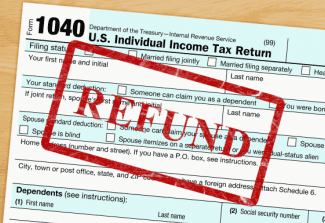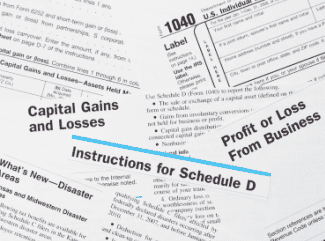7 Smart Year-End Tax Planning Moves
by Thomas F. Scanlon, CPA, CFP®
1) Harvest Capital Losses

2) Give Away Appreciated Property
Appreciated property is property that is worth more that its tax basis. The tax basis is generally what you paid for an item. By giving away appreciated property, you avoid the capital gains tax on this asset if you had sold it and then given the cash.
3) Maximize Annual Gifts
Taxpayers can make gifts of up to $13,000 per year to an unlimited number of people, without having to file gift tax returns or pay gift tax. Granted, you don’t get an income tax deduction for this. However, these assets will be out of their estate. The federal estate tax exclusion is $5 million and the state of Connecticut exclusion is $2 million. In the current economy, many children and grandchildren need all of the help they can get.
4) Self Employed Individuals Should Consider Establishing a Simplified Employee Pension (“SEP”)
While many taxpayers are eligible for an IRA or a Roth IRA, self employed individuals also have the option of establishing a SEP. A SEP allows a taxpayer to contribute the lesser of 20% of net income or $49,000 in 2011. Although, you do have until the due date of the returns including extensions to fund the SEP, it’s good idea to plan now if you will be using this vehicle.
5) Connecticut Taxpayers Should Fund a Connecticut CHET 529 Account
Connecticut taxpayers should fund the Connecticut 529 Plan. This is called the Connecticut Higher Education Trust or “CHET.” Married couples filing a joint return are allowed to deduct up to $10,000 on their Connecticut income tax return.
6) Small Business Owners Should Accelerate Deductions and Defer Income
Many people own a small business; some even run their small business out of a home office. Most of these businesses are on the cash basis of accounting. Look at where you are profit-wise. By accelerating their expenses by paying them now and delaying billing, this will reduce taxable income.
7) Taxpayers Over Age 70 1/2 Should Consider Making Charitable Donations From Their IRA
Taxpayers over the age of 70 1/2 can make charitable donations from their IRA. The distribution from the IRA is not included in their income. On the other hand, they do not get a tax deduction for this; they do however get these assets out of their estate. Additionally, this qualifies as part of their Required Minimum Distribution (“RMD”).
ACTION ITEM: Here are 7 Smart Year End Tax Planning Moves. But you better hurry. The year will be over soon.
Thomas F. Scanlon, CPA, CFP® is with Borgida & Company, P.C., Certified Public Accountants in Manchester, Connecticut, celebrating 44 years of tax, advisory and accounting services. Call 860.646.2465 for more.
See Landlords Get Relief From 1099 Reporting Requirements.
With AAOA, landlords have resources at their fingertips. Check out our Landlord Forms page.
American Apartment Owners Association offers discounts on products and services for landlords related to your rental housing investment, including rental forms, tenant debt collection, tenant background checks, insurance and financing. Find out more at www.joinaaoa.org.















 Accessibility
Accessibility